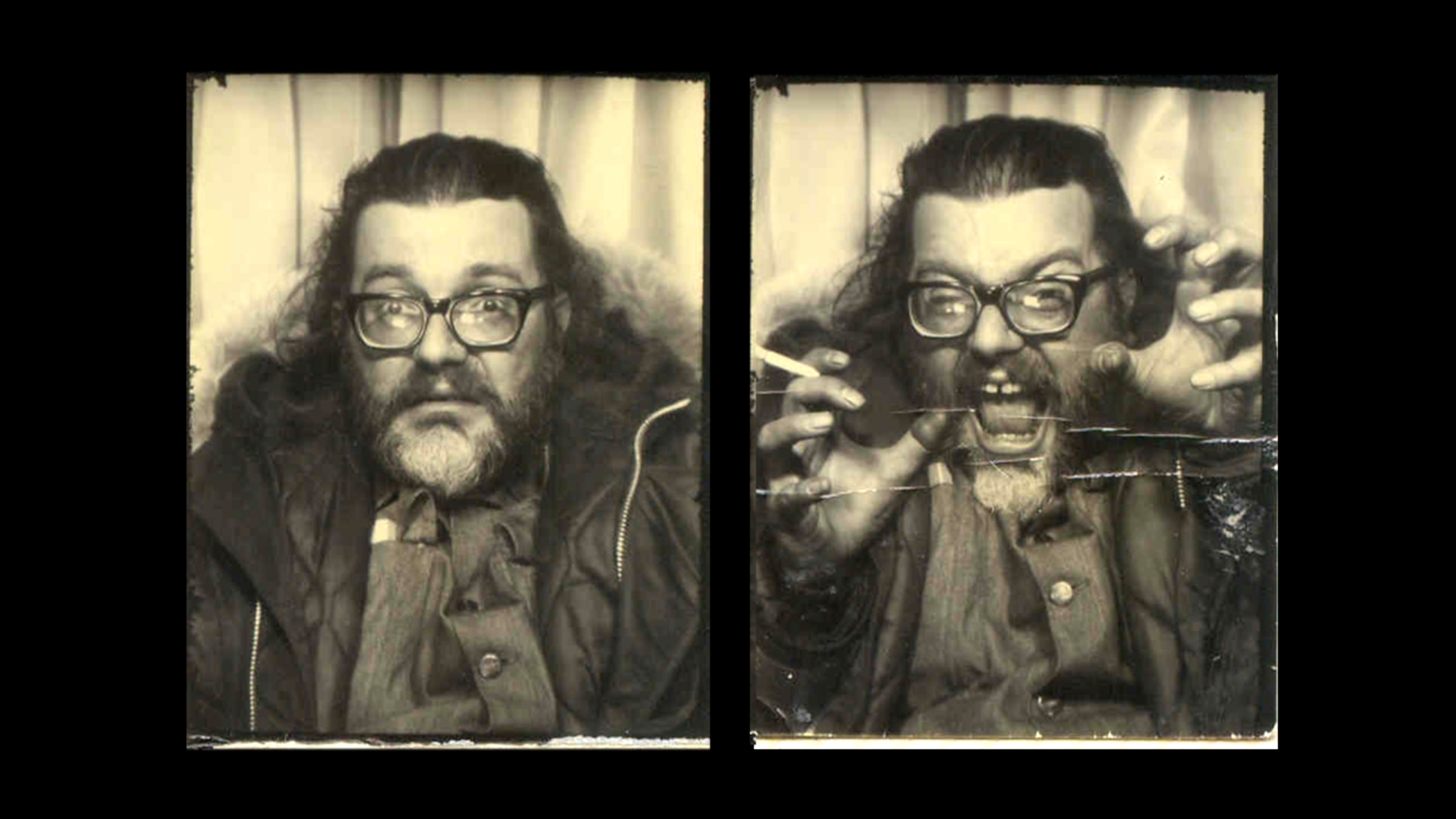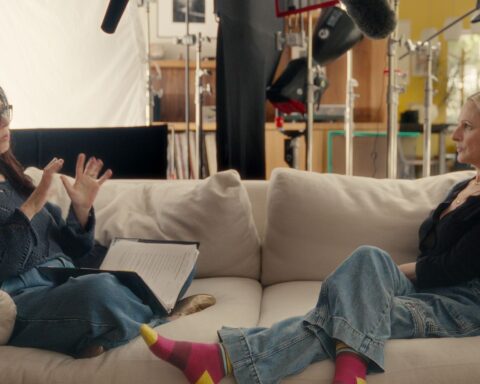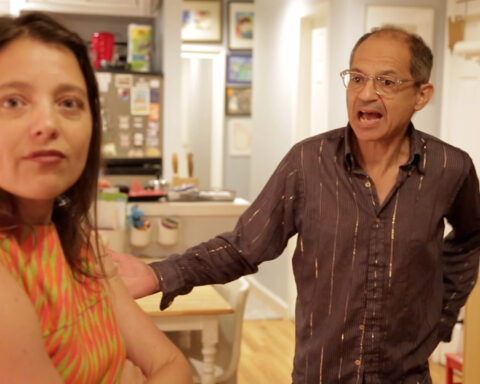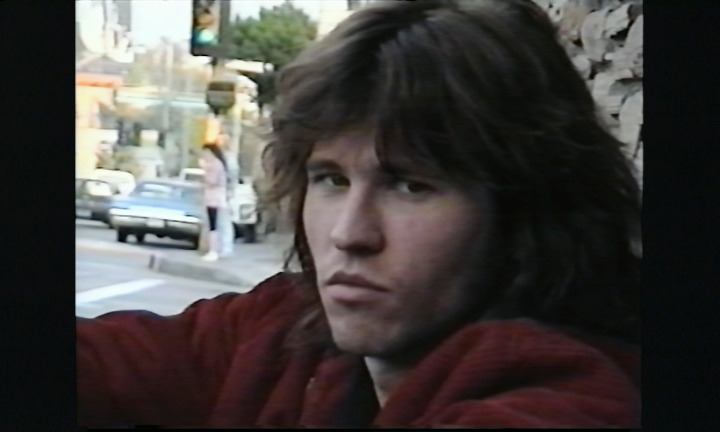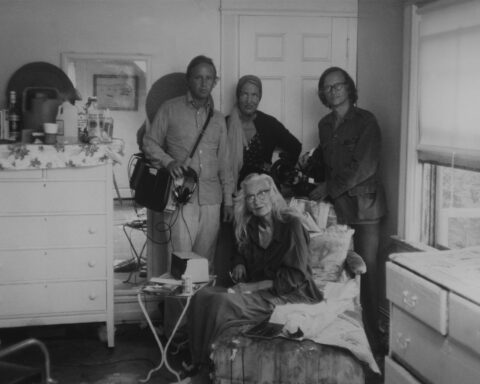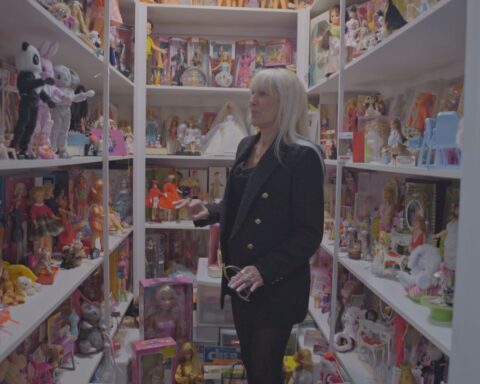Whether it was his desire or not, Del Close ended his career being known as the man behind the men and women of comedy. Adored by many in the business and respected as a pioneer of modern-day improvisation, Close never took the spotlight but is heavily responsible for the comedic landscape of today. Some of the greatest comedians and comedic actors of this era, like John Candy, Bill Murray, Stephen Colbert, Tina Fey, Amy Poehler, and many others, remember Close as a comedy teacher and major influence on their careers. A man only known to the cognoscente, For Madmen Only introduces Close to the masses with stark honesty and admiration.
The film chronicles Close’s life beginning with the retelling of his father’s suicide right in front of him, when he as 8 years old. A horrific event which undoubtedly shaped him into the man he would become. However, as the film tracks Close’s life, it’s clear that perhaps this story, at the very least, isn’t entirely accurate. The tone that this question mark creates in the movie is pervasive throughout: Close was an intelligent man with vision, but also one deeply troubled.
It’s also posited whether Close resented the success of his colleagues and those whom he mentored. At the beginning of his career, he helped create an improv comedy troupe called The Compass Players in St. Louis. Two of his partners in crime were Mike Nichols and Elaine May, who would find great success in New York City but as a duo. Close would feel betrayed and left behind by Nichols and May, and while he attempted to build his own career by joining Second City in both Chicago and Toronto, he would never achieve the success he felt he deserved.
Although it would be easy to feel great sympathy for someone like Close, For Madmen Only is forthright in its exploration of the man. Close’s unpredictable antics and behaviour made him difficult to work with, which were exacerbated by his substance abuse problems. He burned bridges and it’s mentioned that Martin Short did not like him. (No doubt there were others.) He did find a great deal of success, though, by creating a new version of improvisation called Harold — a long-form style still performed by improv groups and troupes across the world today — and in co-founding the ImprovOlympic theatre in Chicago with comedian Charna Halpern.
One aspect of Close’s career that is heavily drawn from is one that some of his most ardent fans may not know. Close had created a comic book series with DC Comics in the ‘80s called Wasteland. It was part of the horror genre and inspired by Cole’s life, albeit with some dramatic license and gory exaggeration.
Director Heather Ross uses_ Wasteland_ as a vehicle to tell Close’s story. Not only are there behind-the-scenes editorial meetings and brainstorms reenacted by James Urbaniak, Matt Walsh, and Josh Fadem (playing Close, editor Mike Gold, and writer John Ostrander, respectively), panels of the comic itself are used to illustrate different moments in Close’s life.
The use of Wasteland’s panels, as well as other comedic reenactments from Lauren Lapkus, Patton Oswalt, and Paul Scheer, are perfectly in keeping with Del Close as a man and a comedian. The comic book in particular serves as a great visualization of how Close perceived memorable events in his life. However, it’s the interviews with Close’s proteges, notably Tim Meadows, Bob Odenkirk, and Mike Myers, and his own archival footage that delivers the greatest insight.
For Madmen Only is almost an investigative documentary as it becomes clear that Close might be an unreliable narrator to his own story. Hearing Close, his contemporaries, and students tell the same story with varying versions creates added ambiguity to understanding who he is. While we may never have all of the pieces to the puzzle, Ross gets close to putting together a portrait of this comedy legend.
In many ways For Madmen Only, is a great gift to Del Close as it shines a spotlight on his achievements and gives him the recognition he desired in life. Comedy and improv nerds will be delighted by the film — it’s an excellent deep-dive into one of the main influences on contemporary comedy—and the archival footage of Close discussing Harold will surely have them frothing at the mouth. Ross has made Close’s story accessible to everyone by focusing on the universal truths that self-assessment is difficult, and even though we may not achieve our original hopes and dreams, it doesn’t mean that the impact we make isn’t important or worthwhile.
For Madmen Only streams via Hot Docs Ted Rogers Cinema beginning July 29.
r




